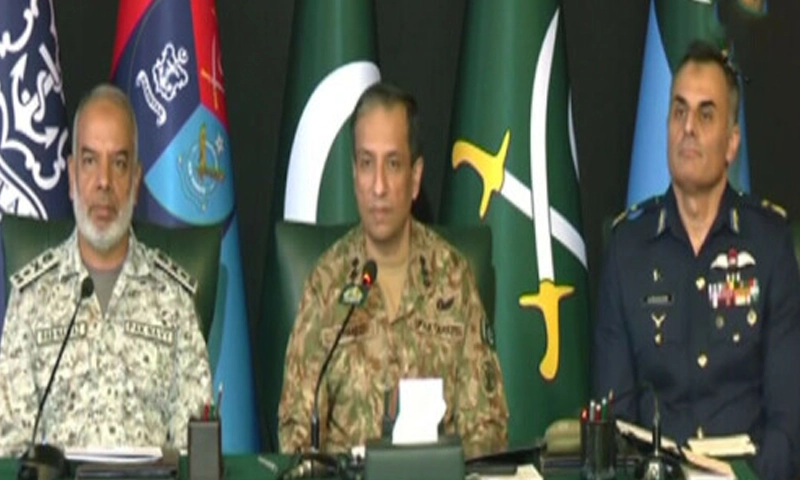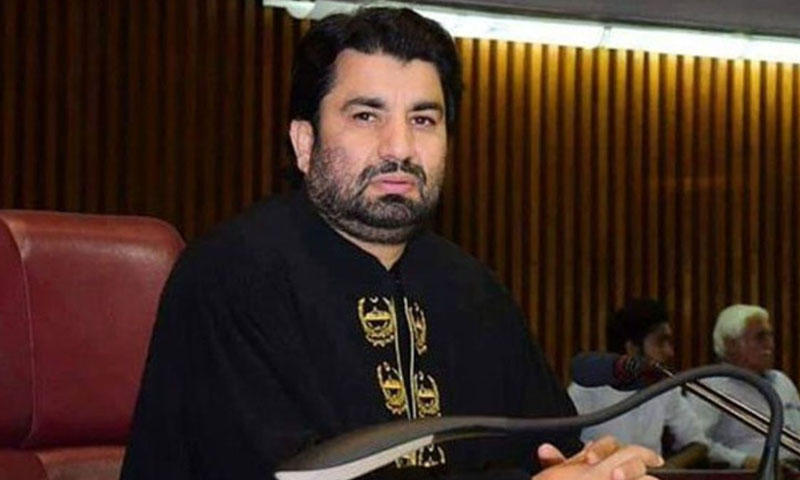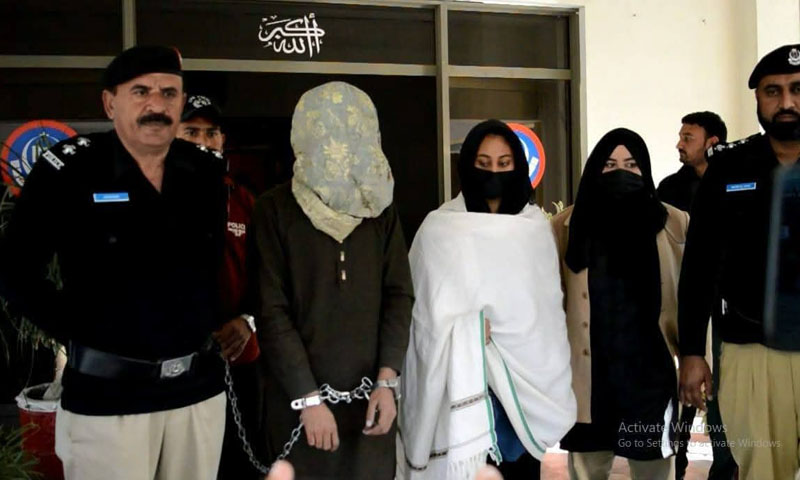- Web Desk
- Feb 09, 2026
ISPR hails decisive response in Operation Bunyan-um-Marsoos against Indian aggression
-

- Javed Somroo Web Desk
- May 12, 2025

ISLAMABAD: The Inter-Services Public Relations (ISPR) has said that the Pakistan Armed Forces conducted “Operation Bunyan-um-Marsoos” on 10 May 2025, as part of the military conflict “Marka-e-Haq”, in response to the Indian military’s brazen attacks that began on the night of 6–7 May 2025.
“These attacks resulted in the loss of innocent civilian lives, including women, children, and the elderly. Pakistan had vowed justice and retribution for the reprehensible aggression and brutal killings of its citizens. Alhamdulillah, the Pakistan Armed Forces have fulfilled the promise made to the nation,” it said in a press release issued on Monday.
The ISPR said: “The Armed Forces thank Almighty Allah for His infinite blessings, mercy, support, and divine help. Allah has ordained believers to stand firm in the face of injustice. We bow our heads in humility, grateful for the strength granted to translate our resolve into decisive battlefield actions. Our hearts and sympathies are with the families of the Shuhada who sacrificed their lives for the nation. We pray for the swift recovery of our injured countrymen.”
It said: “We extend heartfelt gratitude to every officer, soldier, airman, and sailor of the Pakistan Armed Forces whose courage, professionalism, and sacrifice made this success on the battlefield possible. The Armed Forces express deep appreciation to the brave Pakistani nation, whose unwavering moral strength, resilience, and, above all, wholehearted prayers and support remained with us throughout these trying times. This national unity was the most potent force multiplier for our Armed Forces.”
The ISPR said, “We are especially indebted to the youth of Pakistan, who stood as frontline cyber and information warriors for the country.”
It thanked the vibrant media of Pakistan, which stood firm like Bunyan-um-Marsoos — a steel wall — against Indian disinformation and reckless war-mongering.
“We extend our appreciation to the diplomatic corps for representing Pakistan’s case at international forums with clarity and conviction. We thank our scientists and engineers for developing indigenous and specialized technologies that played a critical role in the success of Operation “Bunyan-um-Marsoos.”
The Armed Forces are extremely grateful to the leadership of all political parties, without distinction, for their unified resolve in support of national defence, the ISPR said.
“We especially acknowledge the inspiring leadership of the prime minister and the cabinet ministers for their strategic, destiny-shaping decisions that steered the country through this critical period,” he said.
It said that Pakistan’s response was a textbook demonstration of integrated tri-services jointness—enabled by real-time situational awareness, network-centric warfare capabilities, and seamless multi-domain operations. This synergy across air, land, sea, and cyber domains ensured precision engagement, overwhelming firepower, and rapid operational tempo. All platforms functioned in coordination, delivering decisive effects at carefully selected targets.
“Using precision-guided Fatah-series missiles (F1 and F2), advanced munitions of the Pakistan Air Force (PAF), long-range loitering drones, and high-accuracy artillery, 26 military targets were struck. These included facilities that had targeted Pakistani civilians and entities responsible for fomenting terrorism within Pakistan, both in Indian Illegally Occupied Jammu and Kashmir (IIOJK) and mainland India,” the ISPR said.
The targets included air force and aviation bases at Suratgarh, Sirsa, Bhuj, Naliya, Adampur, Bhatinda, Barnala, Halwara, Awantipura, Srinagar, Jammu, Udhampur, Mamun, Ambala, and Pathankot—all of which sustained significant damage, it said.
BrahMos missile storage facilities at Beas and Nagrota—previously used to launch missiles that killed Pakistani civilians—were also destroyed, the ISPR said.
It said that S-400 air defence systems at Adampur and Bhuj were successfully targeted and neutralised by the PAF.
“Military logistics and support installations aiding operations against Pakistani civilians—such as the Field Supply Depot in Uri and the Radar Station in Poonch—were also destroyed. Military Command Headquarters, including 10 Brigade and 80 Brigade at KG Top and Naushera, which were involved in planning and executing the killing of civilians, particularly children, were eliminated.”
The ISPR said that facilities that harboured, trained, and equipped proxy operatives responsible for terrorist attacks inside Pakistan were specifically identified and destroyed. These included intelligence units and their forward field elements at Rajauri and Naushera.
Across the Line of Control, military targets—headquarters, logistics bases, artillery positions, and posts responsible for civilian casualties in Azad Jammu and Kashmir—were relentlessly engaged and heavily damaged until they raised white flags requesting restraint.
India used drones to violate Pakistani airspace and intimidate civilians. In response, dozens of armed Pakistani drones hovered over major Indian cities and strategic facilities—including New Delhi—extending from IIOJK to Gujarat, showcasing Pakistan’s long-range unmanned strike capability and exposing the vulnerability of such tactics, it said
Pakistan also carried out comprehensive and effective cyber operations, temporarily degrading critical systems and infrastructure supporting Indian military operations, the press release said.
The Pakistan Armed Forces possess a sophisticated suite of niche military technologies. Only a limited portion was employed in this conflict, and that too with calculated restraint.
Despite India’s relentless provocations, the ISPR said Pakistan’s military response remained precise, proportionate, and remarkably restrained. Efforts were made to avoid civilian casualties, focusing solely on those entities and installations directly involved in orchestrating the attacks against Pakistani civilians or supporting terrorism inside the country, it said.
Pakistan also experienced an abnormal spike in Indian-sponsored terrorism across Khyber Pakhtunkhwa and Balochistan while its forces were engaged on the eastern front. This further confirmed India’s direct role in fueling terrorism within Pakistan. Their proxies were fully operationalised to distract and divide our response.
The ISPR said even so, the resilient Pakistan Armed Forces conducted effective counter-terrorism operations in the western region simultaneously with Operation Bunyan-um-Marsoos, without any pause.
“Marka-e-Haq stands as a testament to the synergy between all elements of national power—backed by the overwhelming support of the Pakistani public—in defending our sovereignty and territorial integrity. Let there be no doubt: whenever Pakistan’s sovereignty is threatened and its territory violated, the response will be comprehensive and decisive. The Pakistan Armed Forces thank and salute the nation for its courage, resilience, and unflinching patriotism during this conflict,” the ISPR said.




